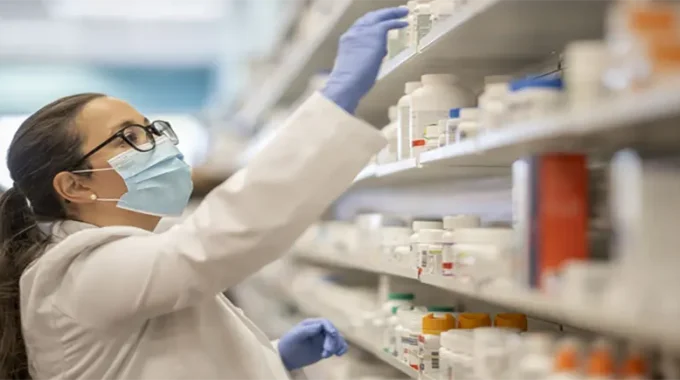In the face of natural disasters and public health emergencies, effective management is crucial for mitigating impacts and ensuring community resilience. The Persatuan Ahli Farmasi Indonesia (PAFI) plays a pivotal role in disaster management, leveraging its expertise in pharmaceuticals and healthcare to contribute significantly to disaster response and recovery efforts. This article delves into the multifaceted role of PAFI in disaster management, highlighting its contributions to preparedness, response, and recovery. pafikabmataram.org
Understanding Disaster Management
Disaster management encompasses a range of activities designed to reduce the impact of disasters, including preparedness, response, recovery, and mitigation. Effective disaster management aims to protect lives, minimize economic losses, and enhance the resilience of affected communities. Key components of disaster management include:
- Preparedness: Developing plans, training, and resources to handle potential disasters.
- Response: Immediate actions taken to address the needs of affected populations during and after a disaster.
- Recovery: Efforts to restore normalcy and rebuild communities following a disaster.
- Mitigation: Measures to reduce the risk and impact of future disasters.
The role of professionals, such as those in the pharmaceutical sector, is integral to these components, ensuring that their expertise contributes to a comprehensive disaster management strategy.
Preparedness: Building a Foundation for Effective Response
In the realm of disaster preparedness, the Persatuan Ahli Farmasi Indonesia is instrumental in several key areas:
- Training and Education: PAFI provides specialized training for pharmacists and other healthcare professionals on disaster preparedness and response. This training covers areas such as emergency protocols, first aid, and the management of pharmaceutical supplies in disaster scenarios. By equipping professionals with the necessary skills and knowledge, PAFI enhances the overall readiness of the healthcare system.
- Resource Management: Effective disaster management requires a well-organized inventory of essential supplies, including medications and medical equipment. PAFI works to establish protocols for the stockpiling and distribution of pharmaceuticals in anticipation of emergencies. This ensures that adequate resources are available to address the medical needs of affected populations.
- Collaborative Planning: PAFI collaborates with government agencies, non-governmental organizations (NGOs), and other stakeholders to develop comprehensive disaster preparedness plans. This collaboration helps ensure that pharmaceutical considerations are integrated into broader emergency response strategies, fostering a coordinated approach to disaster management.
Response: Delivering Critical Support in Crisis Situations
During a disaster, the Persatuan Ahli Farmasi Indonesia plays a crucial role in the immediate response phase:
- Pharmaceutical Care: PAFI coordinates the deployment of pharmacists to disaster-affected areas to provide essential pharmaceutical care. This includes administering medications, managing drug supplies, and offering medical advice to both patients and healthcare providers. The expertise of pharmacists is vital in ensuring that medical treatments are administered safely and effectively during crises.
- Emergency Medical Teams: PAFI supports the formation and deployment of emergency medical teams that include pharmacists. These teams are mobilized to provide on-the-ground support in disaster zones, where they assist in triaging patients, managing medical supplies, and addressing urgent healthcare needs.
- Public Health Messaging: Effective communication is crucial during disasters. PAFI helps disseminate accurate information regarding the safe use of medications, health precautions, and available resources. This helps ensure that the public is informed and can take appropriate actions to protect their health.
Recovery: Rebuilding and Restoring Health Systems
Following a disaster, the focus shifts to recovery, where the Persatuan Ahli Farmasi Indonesia continues to play a vital role:
- Restoring Pharmaceutical Services: PAFI is involved in efforts to restore and rebuild pharmaceutical services in affected areas. This includes repairing and resupplying pharmacies, re-establishing supply chains, and supporting the rehabilitation of healthcare facilities. The goal is to resume normal pharmaceutical services as quickly as possible to support the recovery of the community.
- Ongoing Support: PAFI provides ongoing support to disaster-affected populations through programs such as follow-up care, mental health support, and continued pharmaceutical assistance. Addressing long-term health needs is essential for the full recovery of individuals and communities.
- Evaluation and Improvement: In the aftermath of a disaster, PAFI participates in evaluations of the response and recovery efforts. This includes assessing the effectiveness of pharmaceutical interventions, identifying areas for improvement, and incorporating lessons learned into future disaster preparedness plans. Continuous improvement helps enhance the overall resilience of the healthcare system.
Mitigation: Reducing Future Risks
Mitigation involves taking proactive measures to reduce the risk and impact of future disasters. The Persatuan Ahli Farmasi Indonesia contributes to mitigation efforts in several ways:
- Advocacy and Policy Development: PAFI advocates for policies and regulations that support disaster preparedness and response. This includes promoting the integration of pharmaceutical considerations into national and local disaster management frameworks.
- Research and Innovation: PAFI supports research and innovation in pharmaceutical practices related to disaster management. This includes exploring new medications, technologies, and strategies that can improve the effectiveness of disaster response and recovery efforts.
- Community Engagement: PAFI engages with communities to raise awareness about disaster preparedness and the role of pharmaceuticals in emergency situations. Community education and engagement are crucial for building resilience and ensuring that individuals are prepared to respond effectively in times of crisis.
Conclusion
The Persatuan Ahli Farmasi Indonesia plays an essential role in disaster management, contributing to preparedness, response, recovery, and mitigation efforts. Through its training programs, resource management, and collaborative planning, PAFI builds a strong foundation for effective disaster response. During crises, PAFI’s expertise in pharmaceutical care and public health messaging provides critical support to affected populations. In the recovery phase, PAFI works to restore and rebuild pharmaceutical services while evaluating and improving disaster management practices. Through its ongoing efforts, PAFI enhances the resilience of the healthcare system and contributes to the well-being of communities facing the challenges of disasters.
















